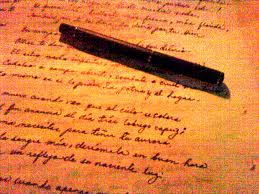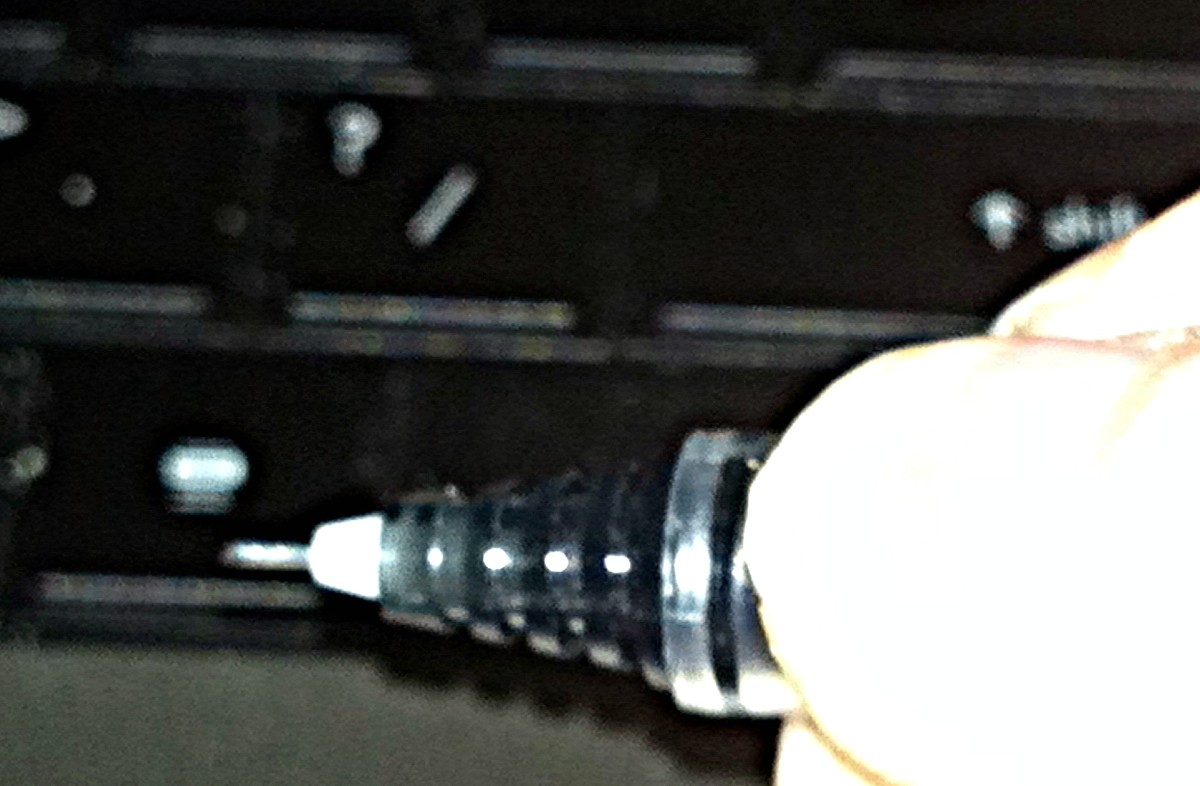How to Write a Paper: Basic Steps and Instructions

Getting Inspired
I've been writing for most of my life, including both for school and for pleasure. Since middle school, I like to have help writing. Whether or not that includes a proofreader, a few words of advice, or anything else, it helps push my thinking forward.
When I was younger I went to Writer's Camp every summer for two weeks over the course of four years. These years were not only formative, but helpful in my growth as a writer and as an individual in general. I got sage advice from freelance writers, professors, and fellow campers who all helped in shaping my thoughts, clearing up my intentions and sometimes even providing inspiration for my material.
In this hub, I will be addressing how I like to write and what motivates me as well as ways for you to survive the horrendous drought they call Writer's Block. This hub is meant to help younger writers who are still receiving their education, but also those of us with a little more experience who sometimes crave the illusive light bulb moment.
Brainstorming
Now we all know that brainstorming is essential to the process of becoming a seasoned writer. And while we all learned the storied methods of bubble and flow charts in school, I'd like to discuss ways that I personally brainstorm that aren't conventional.
First of all, if this is a paper where you need to think of a topic, please start with something you have at least a passing interest in. For instance if you are taking Sociology 101 and were attentive the week your professor started talking about inequality, I'd run with that. Now obviously you will have to get specific so think of an area that might interest you like gender inequality and build from that.
Now if you are in high school or are taking a class with more structure to it, then work with what you have. And by that I mean just go through your notes and build from there. Don't try too hard to go into a random tangent for a subject because usually your instructor (or the poor TA) grading will not like that and you'll ending paying a very high price.
But if you happen to know what you want to talk about as a main topic, you should start by writing down how you can break the paper up into subsections. For instance if you are talking about 20th Century Fashions, you cannot spend the whole paper talking about what types of clothing you want to cover. No, it is best to take a time period and surmise it and then go into deeper details about what fashions stick out the most. Specificity is key, but do not get so specific that you lose the main ideas in the process.
Another way I like to brainstorm is just to start reading. I read alot as it is, but depending on your tastes/attention span you can work from there. For instance if you're like me and check sites like CNN for news, then scan the headlines for ideas. Or if you like something a little more in depth, pick up a book and read it just because you like it. You can pick up a lot from someone else's writing style and thought process. Finally, just grab a magazine that catches your eye and read it. If you're cheap like me read while you wait for groceries to be rang up or go to the library and peruse the periodicals. They all have variety and can help you with whatever you're thinking of.
Now, if you have a specific way of brainstorming then go for it. It's all about doing what works for you.
Finding Sources
In college when I would have to write a ridiculously epic paper, I would hit up the library website and live chat with a librarian for help. Why? Because it was easy and it worked (not to mention free). Chances if are your university/college/institution has something quite similar and I highly recommend it. Alot of times, I had a specific topic that was hard to Google or enter in subject finder so I needed someone with resources and experience to help. Not to mention it was a huge time saver. The librarian would pull the books and I could find them without rummaging the shelves.
Another genius thing to use would be Wikipedia. And no that does not mean listing Wikipedia as a source. It means reading/scanning an article and then hitting the sources below for good links that will provide specific information, interviews, and sometimes more thorough sources. As long as the site you find is legitimate and has relevant information, it's a win all around.
Remember those books and magazines that I said would help brainstorm? Turns out they make awesome sources. Now be forewarned, not every book/magazine is widely accepted by every instructor. The periodicals archive at your nearest library will also be helpful in providing information that is key to your topic of interest.
Finally, Google is your friend when used properly. The Google Books search engine is a great way to find books that you might can look up at the library or buy/rent from Amazon or some other retailer. Now this will involve a little digging at times because getting too specific or too general will not always work. Again, if you have a reference librarian to help you, they can help you use key search terms.
Whittling Sources
I usually would walk out of my school library looking like Charlie Brown, but it always paid off in getting good results. When I would collect my sources, I ended up whittling them down mainly because instructors (or the sad TA) do not want to go through a grocery list of sources in your bibliography and it's easier to work with 5-6 good sources than 10-12 average ones.
How do you whittle it down? It's comparable to doing an Amazon search in my experience. You put in the basic key words, then specify the parameters available. For instance if you are doing a paper on music videos, you will not be using sources from the 1970s or before. You also will not be looking at YouTube either. There's a happy middle that you must find simply by scanning and writing down information. If two sources look similar, eliminate the least current one or the one that has less material for you to work with.
Bookmarks and those post it pens are also your friend because when you whittle your sources, you also end up getting actual information for your paper. Do not use real ink or highlighters unless you own the book. There's nothing worse than a disrespectful library patron who has abused privileges.
Now, if you realize you are down more sources, then you can repeat the finding part above but you may want to limit it to what you didn't use as much the first time.
Outlining
This is a very important step. You should never underestimate outlining your paper because it will help in the long run. Now of course many instructors require an outline with the final draft, but before you get to the final draft you should also think about how you're going to get there. It just doesn't happen.
I like to do an informal outline. That usually includes me thinking of what the main thesis is and going from there. If I were a songwriter, it's the same thing. The main thesis is your chorus that subtly comes in every few paragraphs. Your hook is the introductory and transitional phrases and sentences. The main paragraphs are the carefully constructed verses. Your conclusion is the bridge and finally the last sentence is a repetitively catchy chorus that will stick to the reader.
However you outline, just make sure the end result is what you are looking for and not something that sounds like the typical paper. You want to stand out but also be conscious of the type of paper you are writing.
Writing the Paper
Now there is no art or science to writing a paper if you ask me. It's just a matter of how you connect your thoughts into words. It may come in spurts or it may take a lot of work-shopping over several days/weeks. What matters most is that you work in a way that works best for you.
If you are like me and abhor introductions and conclusions, then consider writing those last. Write the first couple of body paragraphs and then come back to the introduction and conclusion at your leisure. Don't feel forced into writing what you need to write, let it come to you over time.
Depending on how you work you might want to consider where you write and with what and/or who. If you're like many people I know who worked best with silence and few interruptions, then you might want to go to a quiet room in a library, study area, or Starbucks. Or if you can brave being around friends and classmates then you can attempt working in a group setting.
Just don't write sleepy, the night before, over/undercaffeniated, or a combination of all of those. It never works out well. If you think you can handle pressure, then by all means try it and see how your grade turns out in the long run.
Writer's Block
If you haven't experienced Writer's Block, don't worry you will. What to write about and how to keep writing is something that plagues even the best writers in the world. You really don't think Shakespeare wrote all of his great works in a day? Or Hemingway just happened to stumble on all the right words every time he picked up a pen? No. They both found ways to rekindle their creativity.
What works for me is to stop writing and to do something else that helps me think like taking a walk or eating a sandwich. Or it might just be watching a television show. While you might think that is passive, some shows are good at helping you think like Today or even Biography. Another thing that never fails is listening to music. I do this while writing as well, but it usually doesn't work for everyone. However, with the proper playlist it can work wonders.
Finally, just stop thinking about what you have to do and start thinking about what you want to do. The words eventually will come to you.
Proofreading and Editing
These next two steps make the difference a lot of times between a B and an A or in some cases passing and failing. You want to make sure you at least read over your paper once for grammatical errors, awkward phrases, run-ons, and other various issues you may have with your paper.
After that, if you have the time and access to a trusted friend or associate, then I highly recommend having them proofread your paper. Sometimes what you say sounds good to you, but when read by someone else they sound a lot more ridiculous.
When your paper has been properly read and re-read, then you should edit accordingly. By all means, do not try to attempt changing the tone and scope of your paper. Do not try at the last minute to rewrite a paper just because you don't think it lives up to your standards. You should be confident in the work you have done to build a real, relational, and well-researched work.






